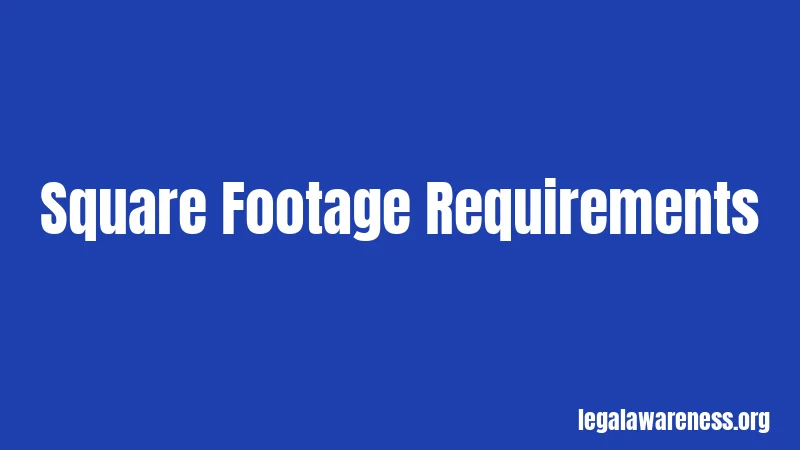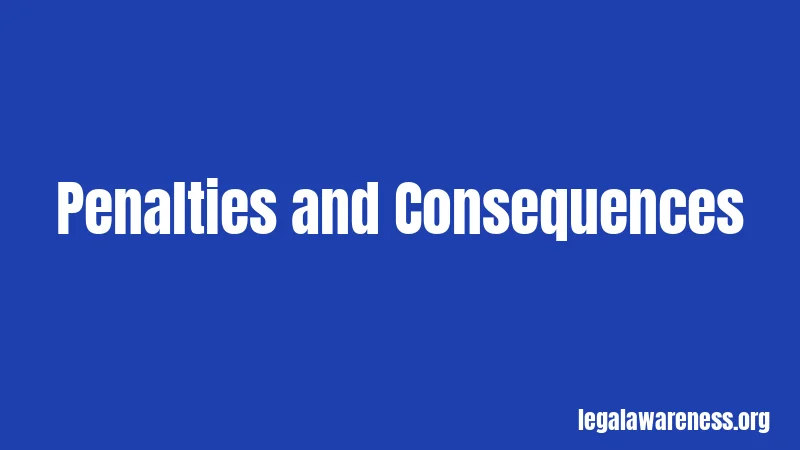Florida Occupancy Laws in 2026: How Many People Can Actually Live Here?
You probably haven’t thought much about occupancy laws. Most people don’t. But they exist for a really good reason, and breaking them can get you in serious trouble. In Florida, these laws control how many people can live in a space, and the rules might surprise you.
Here’s the thing. Violating occupancy laws can result in fines, lawsuits, and even eviction. Whether you’re renting an apartment, running a vacation home, or thinking about having roommates, you need to understand these rules. Let’s break down exactly what Florida requires.
What Is an Occupancy Law?

An occupancy law sets a limit on how many people can legally live in a dwelling. Pretty straightforward, right? It’s not random either. These limits are based on square footage, bedroom count, and safety codes. The rules exist to protect your health and safety.
Think of it like a fire code. Just as buildings can’t exceed a certain capacity during emergencies, homes can’t have unlimited residents. Too many people in one space creates real dangers. You could have plumbing problems, electrical issues, or fire hazards.
Basic Florida Occupancy Standards
The 2 Plus 1 Rule
Here’s where things get specific. Florida uses what’s called the “2 plus 1” rule for most residential spaces. This means two people per bedroom, plus one additional person allowed in the home. So a one-bedroom can have three people. A two-bedroom can have five.
Wait, it’s more nuanced than that though. The rule applies to rental properties and regular homes differently. Let me explain how it works in each situation.
For rental apartments and houses, landlords must follow the “2 plus 1” standard. A studio apartment technically has zero bedrooms. So you’d have one person maximum. A one-bedroom allows three. A two-bedroom allows five.
Not sure how this applies to your specific situation? The key is counting bedrooms correctly. A room only counts as a bedroom if it has a closet and a door. Walk-in closets don’t make a space into a bedroom. Neither do tiny rooms without closet space.
Owner-Occupied Homes
The rules shift a bit if you own your home outright. Owner-occupied properties have more flexibility in some cases. You can have more family members living there than the strict “2 plus 1” rule allows. The reasoning is that you’re responsible for maintaining your own property.
That said, Florida still sets limits. You can’t cram unlimited people into a house just because you own it. Health and safety codes still apply. If your city or county has stricter rules than the state, you follow theirs.
Honestly, this is the part most people miss. Your local city or county might have different occupancy standards than Florida’s state rule. You need to check both. A house that’s legal by state standards might violate your city’s rules.
Square Footage Requirements

Hold on, this part matters more than you’d think. Square footage also determines occupancy limits. Florida requires a minimum of 70 square feet of living space per person. That’s on top of the bedroom rule.
Here’s what that means practically. A 1,000 square foot apartment can legally house about 14 people based on square footage alone. But the “2 plus 1” bedroom rule would limit a two-bedroom unit to five people. The bedroom rule wins. You follow whichever is more restrictive.
This creates situations where the bedroom count is the limiting factor. And honestly, that’s usually the case. Most homes have enough square footage that the bedroom rule is what actually restricts occupancy.
Wondering if this applies to you? Add up your living space. Exclude bathrooms, closets, and utility areas. Measure out 70 square feet per person. Then check your bedroom count. Whichever limit is smaller is your occupancy cap.
Hotels and Short-Term Rentals
The rules get different here. If you’re running a vacation rental or bed and breakfast, occupancy laws don’t apply the same way. Short-term rentals follow different regulations entirely. That’s because guests aren’t considered permanent residents.
However, here’s where it gets tricky. If your “vacation rental” is really a long-term housing situation, occupancy laws do apply. You can’t skirt around the rules by calling it temporary. The intent matters legally.
Florida has been cracking down on short-term rentals in residential areas. Many cities now require permits or have strict limits on vacation rentals. Some neighborhoods ban them entirely. So even though occupancy laws might not directly apply, local regulations might prohibit what you’re doing.
Penalties and Consequences

Okay, pause. Read this carefully. Breaking occupancy laws can be surprisingly serious.
If you violate occupancy laws, you could face fines ranging from $250 to $500. That might not sound terrible. But multiple violations stack up. A landlord violating occupancy rules repeatedly could face fines of $500 to $1,000 per violation. It adds up fast.
Eviction is another real consequence. If you’re renting and violating occupancy limits, your landlord can evict you. This goes on your rental history. Future landlords will see it. It makes finding housing harder and more expensive.
For landlords, violations get worse. You could face code enforcement actions. The property could be deemed uninhabitable or unsafe for occupancy. Banks might not finance a property with occupancy violations. This can tank your investment.
Think of it like a traffic ticket, but with longer consequences. A traffic ticket disappears from your record. An eviction for occupancy violations follows you for years. Tenants blacklist you. Other landlords avoid renting to you.
Student Housing and Group Homes
These situations get special treatment under Florida law. Student housing near universities often has different rules. Licensed group homes for people with disabilities operate under separate standards. The same applies to assisted living facilities.
If you’re managing student housing, check your local university area regulations. Cities with large colleges often have specific ordinances for student housing. These can allow higher occupancy than normal residential limits.
Group homes serving vulnerable populations have flexibility too. These aren’t treated as regular rental properties. They operate under health department and disability service regulations. The occupancy rules are determined by licensing requirements, not the “2 plus 1” rule.
Personal opinion? These exceptions make sense. Students at a university aren’t permanent residents in the same way. Group homes serve specific social purposes. The rules recognize those differences.
Recent Law Changes and Updates
Florida hasn’t dramatically overhauled occupancy laws recently. But local enforcement has tightened. Cities have become stricter about vacation rental violations. Code enforcement departments are more active in checking occupancy limits.
The trend is toward stricter enforcement rather than new rules. Municipalities are taking occupancy violations seriously. If your city has had complaints about overcrowding or safety issues, enforcement typically increases.
Many cities added occupancy permit requirements in the past few years. These let authorities track who’s living where. It makes violations easier to identify and prosecute.
Your Local Rules Matter Most
Here’s something important. Florida sets the baseline. But your city or county can have stricter standards. And they often do.
Miami-Dade County has specific occupancy ordinances. They’re stricter than the state baseline in many areas. Broward County has its own rules. Hillsborough County differs too. Every major municipality has local codes you need to check.
A home that follows Florida state law might violate your city’s code. This happens frequently. So checking state law isn’t enough. You absolutely must verify your local requirements.
How to Check Your Occupancy Limit
Actually, this is simple. Start with your deed or lease. It might state occupancy limits directly. Check the square footage. Count actual bedrooms with closets and doors.
Next, contact your local code enforcement office. They can tell you the exact occupancy limit for your property. It takes five minutes. They have clear answers. Just call and ask.
For rental properties, check your lease. Landlords are required to disclose occupancy limits. They should be in writing. If they’re not, ask your landlord directly. Get it in writing.
You could also check your city or county website. Most municipalities post occupancy standards and zoning codes online. It takes a little digging, but the info is usually there.
Special Circumstances and Exceptions
Not all situations follow standard rules. Families with caregivers often need more people in the home. Multigenerational families might have legitimate reasons for exceeding limits. Some people need live-in health aides.
Florida allows variances for legitimate needs. You can request a variance from your city or county. This is a formal request asking permission to exceed occupancy limits. You need to explain why and provide documentation. A caregiver’s letter or medical documentation helps.
The process takes time. Variances aren’t automatic. But they’re possible if you have genuine need. A family with a disabled member requiring 24-hour care might get a variance. Someone wanting to rent basement rooms to friends probably won’t.
Avoiding Problems
Stay within the limit. Seriously, that’s the main one. Stick to what your property allows. Count accurately. Know your square footage. Understand the bedroom rule.
If you’re a landlord, screen tenants carefully. Make sure they understand occupancy limits. Include it clearly in your lease. Inspect periodically. Document your property occasionally to show you’re monitoring occupancy.
If you’re renting, understand your limit. Don’t let friends move in “temporarily” if it exceeds the occupancy cap. Temporary guests are fine. Permanent residents count toward your limit.
For vacation rentals, follow all local permit and registration requirements. Many Florida cities now require short-term rental permits. Some neighborhoods prohibit them entirely. Know your local rules before listing.
Frequently Asked Questions
Can I have roommates if I own my home outright? Yes, but you still have to follow occupancy limits. Owner-occupied homes can’t exceed safety and health codes. The “2 plus 1” rule or your city’s standard still applies, even if you own the place.
What counts as a bedroom for occupancy purposes? A room needs a closet and a door to count as a bedroom. Walk-in closets don’t create bedrooms. Tiny rooms without proper closets don’t count. Basements and attics require proper ventilation and exits to count.
Can I request a variance if I need more people living here? Absolutely, but you need a legitimate reason. Contact your local code enforcement office. They’ll explain the variance process. Valid reasons include medical caregivers, disabilities, or multigenerational family needs.
Are overnight guests counted toward occupancy limits? No, temporary guests don’t count. Guests who stay less than 30 days typically don’t count as residents. But someone moving in permanently, even without updating their address, counts toward occupancy.
What should I do if my landlord is overcrowding the property? Report it to your local code enforcement office. They’ll investigate. You can also contact your city’s housing authority. Document everything. Take photos if safe. Keep records of when issues occur.
Final Thoughts
You now know the basics of Florida occupancy laws. The “2 plus 1” bedroom rule is the starting point. Square footage adds another limit. Your city might have stricter rules. Check both state and local requirements.
Most importantly, stay within your property’s limit. The consequences of violations aren’t worth the savings or convenience. Whether you’re renting, landlording, or owning, occupancy laws protect everyone’s safety and your investment.
When in doubt, call your local code enforcement office. They give free answers. Or ask a lawyer. Now you’re informed, stay safe, and follow the rules.
References
Florida Statutes Chapter 553 – Building Construction and Code
Florida Building Code, 5th Edition (2020)
Florida Department of Business and Professional Regulation
